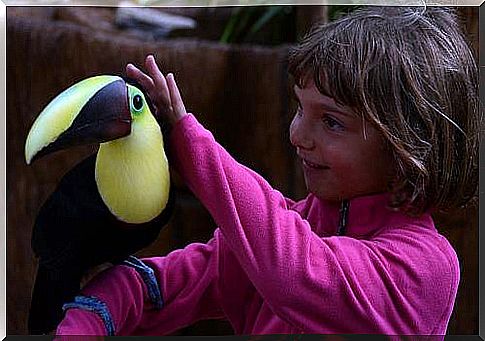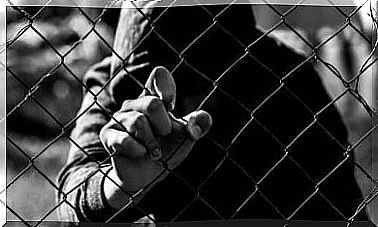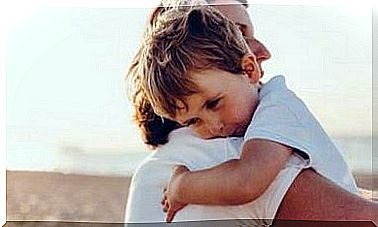The Power Of Caresses

No other sense guarantees us such direct contact with other human beings as touch. In fact, people are pure touch: the skin covers our whole body and the hands, the main seat of the tactile function, are complex body parts, which make us totally different from other animals.
It is no exaggeration to say that the language of touch is one of the factors that makes us unique among other beings. It is said, for example, that a newborn who is never stroked has a very high risk of dying.
When the Second World War had recently ended, a phenomenon occurred that aroused the curiosity of researchers. In two state orphanages, it was reported that children growing up in one were on average of better height and weight than the other. The situation was strange, as both structures were under the same management.
When investigations were made, it was discovered that the difference was due to the people responsible for the children. While Ms. Grun used to play and pamper the children she cared for, Ms. Schwarz had a much more detached relationship with the little ones growing up in her facility.
By pure chance, the two women were transferred, and each of them found himself running the orphanage that was previously under the direction of the other. At that point, what was already thought was confirmed: children who previously had a very favorable growth rate, began to lose weight and to grow more slowly. Meanwhile, the others grew and gained more weight.
The University of Miami also conducted a study that yielded similar results. In that case, the growth of prematurely born babies was observed to stop while they were in incubators. For this reason it was proposed to let them go out for fifteen minutes three times a day, during which the newborns were caressed. The results were extraordinary: in a short time the children reached a normal level of maturity and were discharged from the hospital a week before other infants who were not stroked.
Parents today very often do not have enough time to devote to their babies and, for this reason, a group of researchers are starting to wonder if the exponential growth of violence among young people could have a direct relationship with this lack of contact of the newborn. with mom and dad in the early stages of life.
In the United Kingdom, a study was carried out on this topic, directed by Dr Penelope Leach, who decided to analyze the different types of care for children under the age of five, and their repercussions on their development.
The experts analyzed the saliva of babies who received no response when they cried, and found that there was a high presence of cortisol in their bodies. Cortisol is a hormone that is produced when we are under stress.
This substance has a highly harmful effect when it acts on a developing brain. It also impairs the responsiveness of the immune system. As a result, it was concluded that these children were more likely to get sick.
In this way, it was also discovered that the stress derives not only from threatening stimuli, but also by deficiency situations or by the tension that generate the affective need not met. This frustration could turn into the cause of subsequent latent or expressed aggression.
Science, therefore, confirms what we all, in one way or another, have intuited. Affective contact through touch makes us better and stronger people. This doesn’t just apply to newborns, although it is particularly important at that stage of life. The need for caresses continues throughout our life and, even in adults, they produce exactly the same effect as they do in children.
Image courtesy of Xavi Talleda









